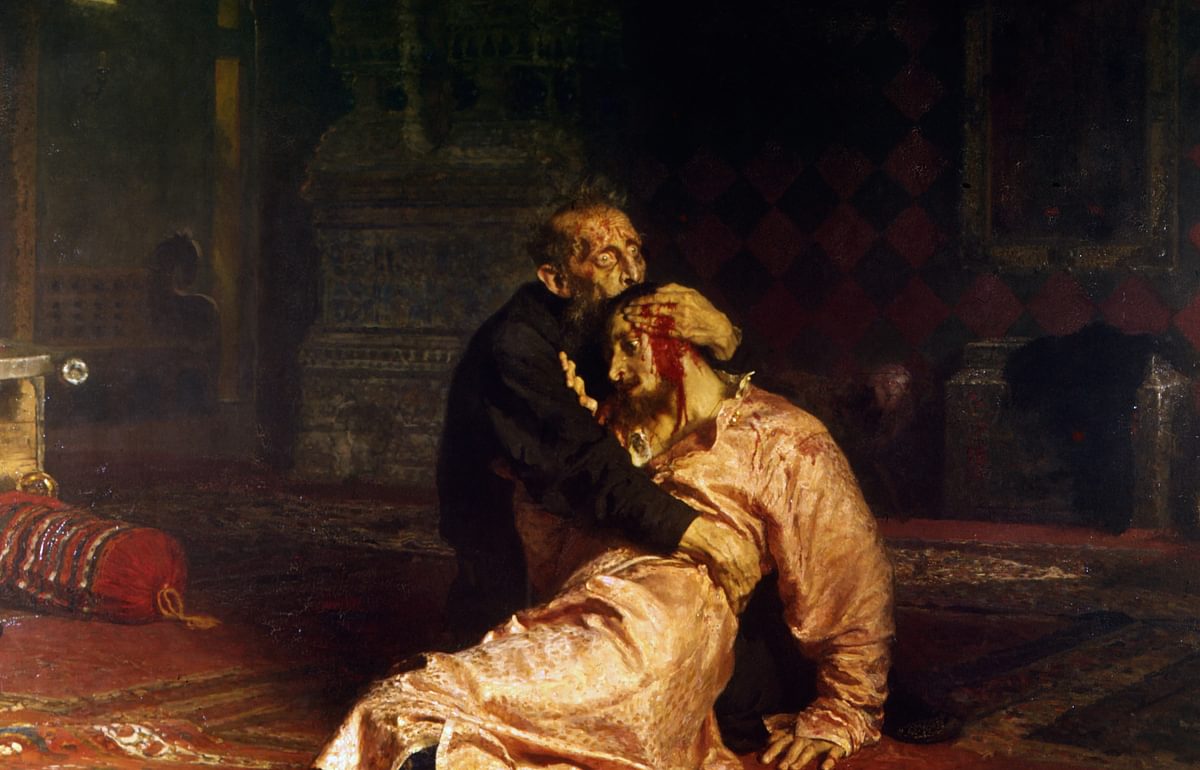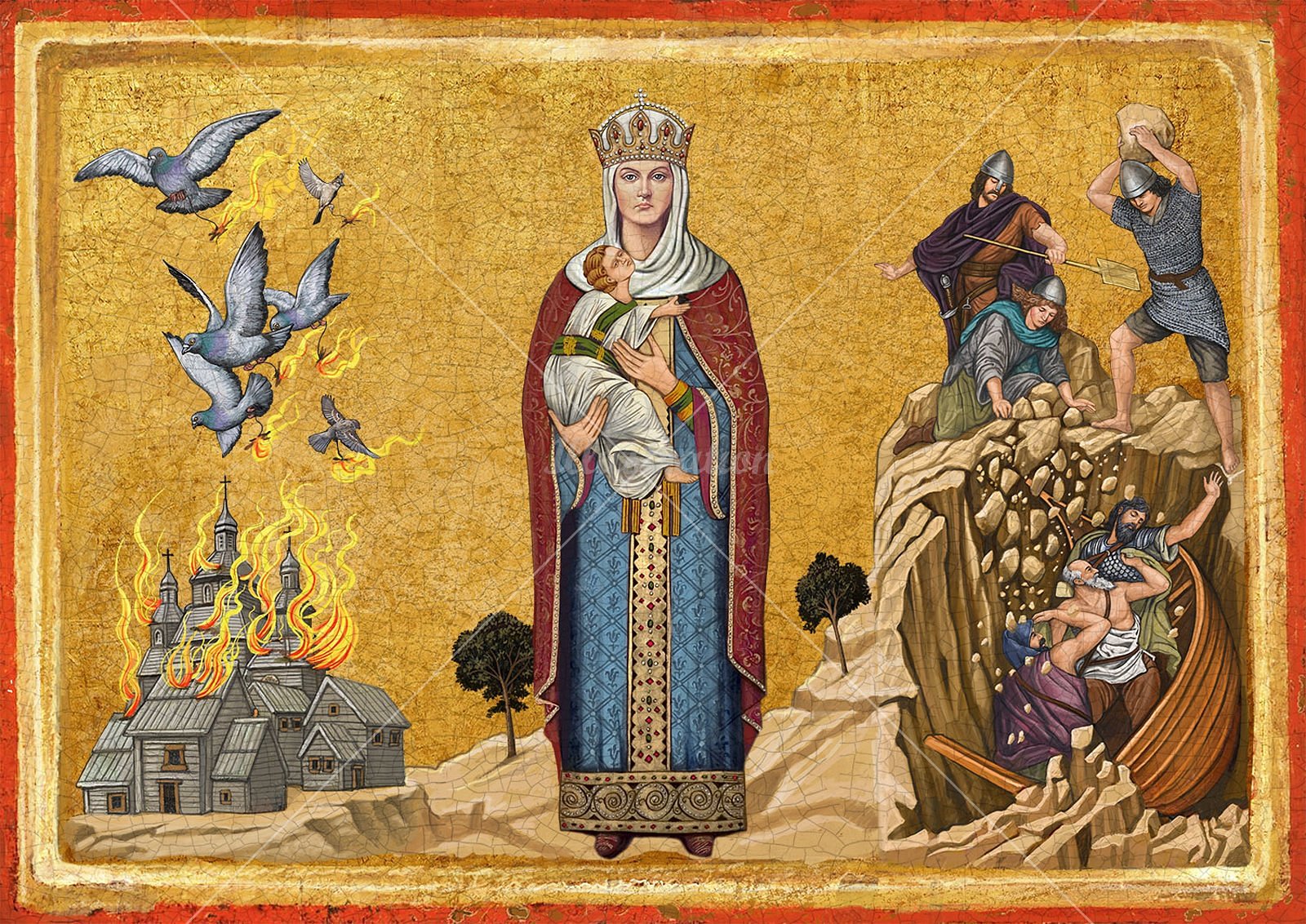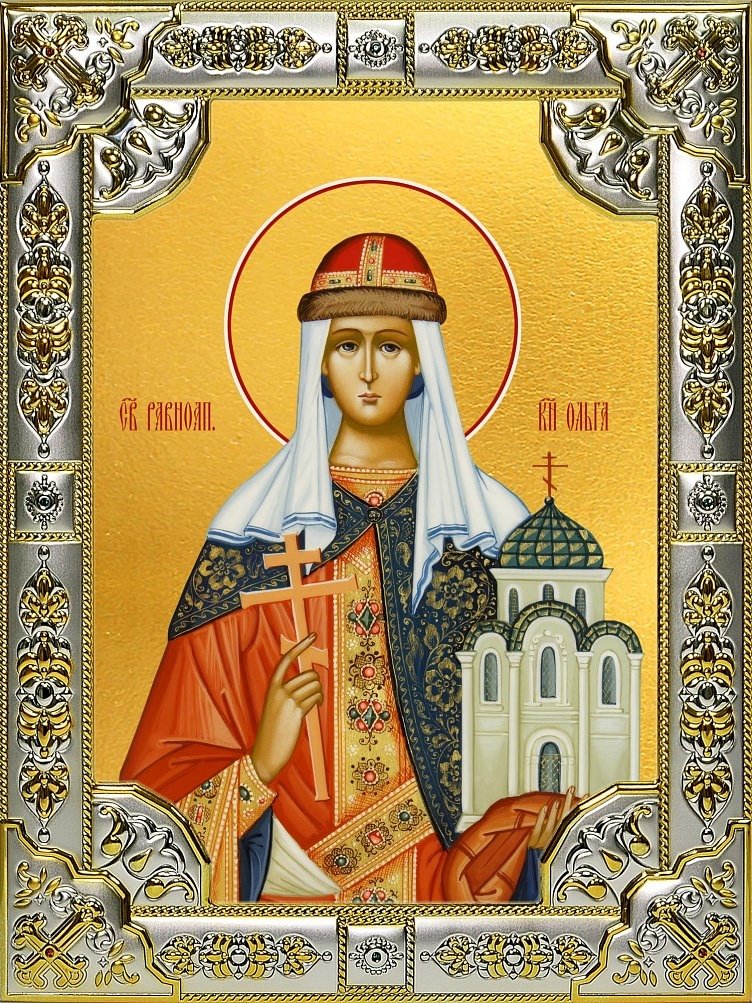
In this episode, we take up the story of Igor’s widow, Olga. Previously granted only a passing mention in the chronicles on the occasion of her marriage, she bursts onto the scene once more with murder and mayhem as a warrior queen taking revenge on the Derevlians for the death of Igor. Or does she? The narrative seems strangely structured and has a number of weird details that look like they might be symbolic, so we’re going to take a look at what the real story might be.

After dispatching the Derevlians and carrying out some important reforms around Rus, she goes to visit Constantinople. The Olga of the second half of the tale is very different to the first. The fierce, vengeful warrior queen is gone, replaced by a pious convert to Christianity.
Although she does not get very far in her efforts to convert the rest of her kingdom - her son and heir Svyatoslav has no interest in a change of religion - the chronicler seems really, really impressed with her, rambling on for whole paragraphs of praise and admiration. Was this all due just to her converting, or is there a bigger picture behind all of it? What makes her the equal of the saints?

In between these stories in the Tale of Bygone years, there are clues as to what the real Olga was actually doing, which, along with archeological evidence and contemporary writings from Rus’ neighbours, show us the queen behind the folk tales and hagiographies, an Olga who was an impressive and influential ruler in her own right and has a lasting effect on the development of Rus.
For the whole story, listen to Episode 1.29 - Olga of Kyiv - now on Spotify, Apple Podcasts, or YouTube.
Subscribe to the show on Patreon, Anchor for Spotify users, or Apple Podcasts for exclusive member content.